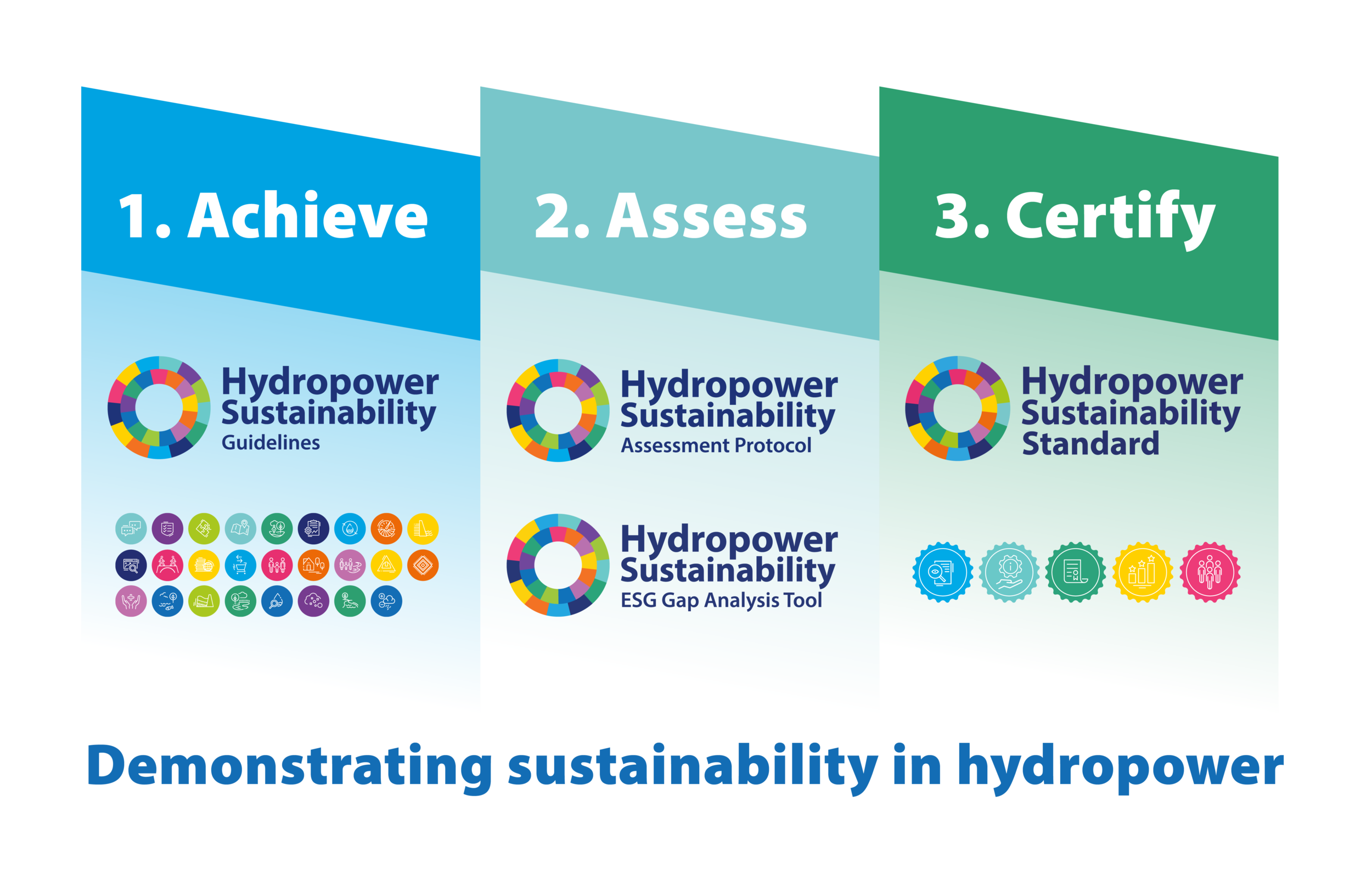Consultation on a groundbreaking global sustainability standard for hydropower
Hydropower projects around the world could soon be independently rated and certified for their sustainability performance, following a public consultation open to all stakeholders.
The International Hydropower Association (IHA), on behalf of a multi-stakeholder coalition of industry, civil society, governments and financial institutions, is publishing today a consultation paper on the development of a global sustainability standard for hydropower.
If adopted, the Hydropower Sustainability Standard would apply a rating, or label, to projects of any size or stage of development. This would incentivise and recognise responsible project developers, and help investors, governments and communities understand which schemes meet international environmental, social and governance (ESG) performance requirements.
The rating and certification system would build on and complement the Hydropower Sustainability Tools, a set of guidelines and assessment tools used by developers, operators and financiers.
“The Hydropower Sustainability Standard would incentivise high-performing hydropower projects while helping to set minimum expectations for the whole sector,” said Eddie Rich, Chief Executive of IHA, a non-profit membership association and the custodian of the tools.
“This certification system would publicly recognise and reward projects that meet minimum expectations based on established definitions of good and best practice. This would give local, national and international stakeholders the vital reassurance they seek that a hydropower project is independently verified as sustainable. From 2021, there is no excuse for any hydropower development not to meet good sustainability standards.”
Labelling structure
The proposed Hydropower Sustainability Standard would mean hydropower developers and operators could easily certify their projects against expected industry practices using a simple-to-understand labelling structure.
The standard could be linked to financial instruments, such as green bonds, and used to demonstrate compliance against criteria used by international lenders such as the World Bank and International Finance Corporation.
Helen Locher, chair of the working group which proposed the new system, commented: “Energy users have a lot more choice these days, and increasingly, sustainability is an important deciding factor. Certification of hydropower against a credible standard will help inform choices.
“A standard has been a long-time aspiration for many, and we have the components and the endorsement needed to make this momentous step. If you have an interest in hydropower, please submit your views on how the standard is designed and implemented.”
Debbie Gray, Senior Advisor at Hydro-Quebec, a leading Canadian hydropower utility, commented: “We are confident that the Hydropower Sustainability Standard will be the most comprehensive standard for the certification of hydropower plants. It will give operators an incentive for integrating sustainable practices into their projects and will allow them to achieve credible, third party recognition for the results."
Standard governance and certification
The Hydropower Sustainability Standard would be governed by the multi-stakeholder Hydropower Sustainability Assessment Council.
The standard could be applied on projects at any stage of project preparation, development and operation. Both new and existing hydropower projects would be eligible to apply for certification.
The working group that developed the proposal was established under a mandate from the Hydropower Sustainability Assessment Council’s governance committee. The group includes representatives from governments, environmental and social organisations, financial institutions, hydropower operators, and IHA accredited project assessors.
Lesha Witmer, Steering Committee for Women for Water Partnership, commented: “Women for Water Partnership, as a member of the working group and governance committee, believes the standard with its norms and exposure can assist in improving the quality and credibility of sustainable hydropower as a contribution to better livelihoods.
“We think it could, and would, be a powerful tool to enhance local stakeholder involvement – including women, indigenous peoples, etc – and make it clear what concerns and benefits are taken into account. Transparency and accountability are the main drivers of the standard as now envisioned,” she added.
Public consultation open until 8 February
The public consultation seeks comments from hydropower stakeholders, including operators and developers, governments, financial institutions, NGOs and civil society. Comments on the consultation paper are welcome by 8 February 2021.
Comments are requested on the aim of the standard, rating system, certification process and other design aspects. After receiving feedback, the working group will finalise the design proposal of the standard and provide recommendations to the council. If accepted, the launch of the standard is expected in the first half of 2021.
Review the consultation paper and provide your comments into the response form.



